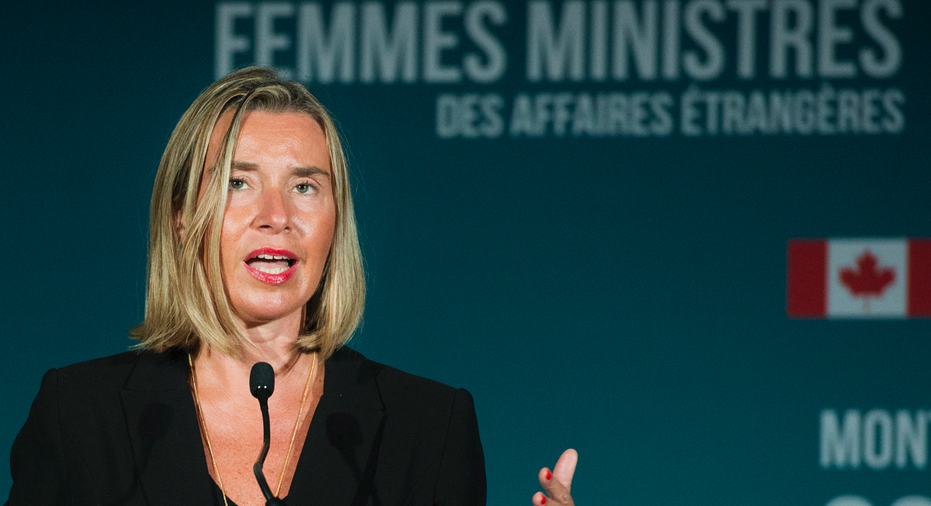EU, Iran set financial "vehicle" to ease trade between them

UNITED NATIONS – Five world powers and Iran agreed late Monday to establish a financial facility in the European Union to facilitate payments for Iranian imports and exports including oil, a key move sought by Tehran following the U.S. pullout from the 2015 nuclear deal and its re-imposition of sanctions.
Foreign ministers from Britain, France, Germany, Russia, China and Iran said in a joint statement that the so-called "Special Purpose Vehicle" will "assist and reassure economic operators pursuing legitimate business with Iran."
The nuclear agreement is meant to prevent Tehran from developing nuclear weapons, but U.S. President Donald Trump announced in May he was unilaterally pulling out because he felt it wasn't strong enough and didn't cover other issues of concern to the U.S. and its allies, such as Iran's military influence in the Middle East and ballistic missile program. The U.S. has also accused Iran of promoting international terrorism, which Tehran vehemently denies.
Iran's economy is already suffering from the sanctions that Washington re-imposed after walking away from the nuclear agreement, and the U.S. has threatened to punish companies from other nations that continue doing business with Iran.
In sharp contrast, the five other world powers who signed the nuclear deal remain strongly committed to it, and the new financial facility is almost certain to anger the Trump administration.
European Union foreign policy chief Federica Mogherini told reporters after the closed-door ministerial meeting that the financial facility is also aimed at preserving the nuclear agreement. The EU and Iran say the deal is working, and the joint statement notes that the International Atomic Energy Agency has now certified 12 times that Iran is in compliance with its obligations.
"In practical terms," Mogherini said, "this will mean that EU member states will set up a legal entity to facilitate legitimate financial transactions with Iran and this will allow European companies to continue to trade with Iran in accordance with European Union law and could be open to other partners in the world. "
She said the agreement follows extensive exchanges and announced that a meeting of technical experts will be held to "operationalize" the new financial facility.
The joint statement said the six countries that signed the 2015 nuclear agreement "reconfirmed their commitment to its full and effective implementation in good faith and in a constructive atmosphere." They called the agreement "a key element of the global non-proliferation architecture and a significant achievement of multilateral diplomacy."
The participants reaffirmed their joint statement on July 6, "in particular to pursue concrete and effective measures to secure payment channels with Iran."



















